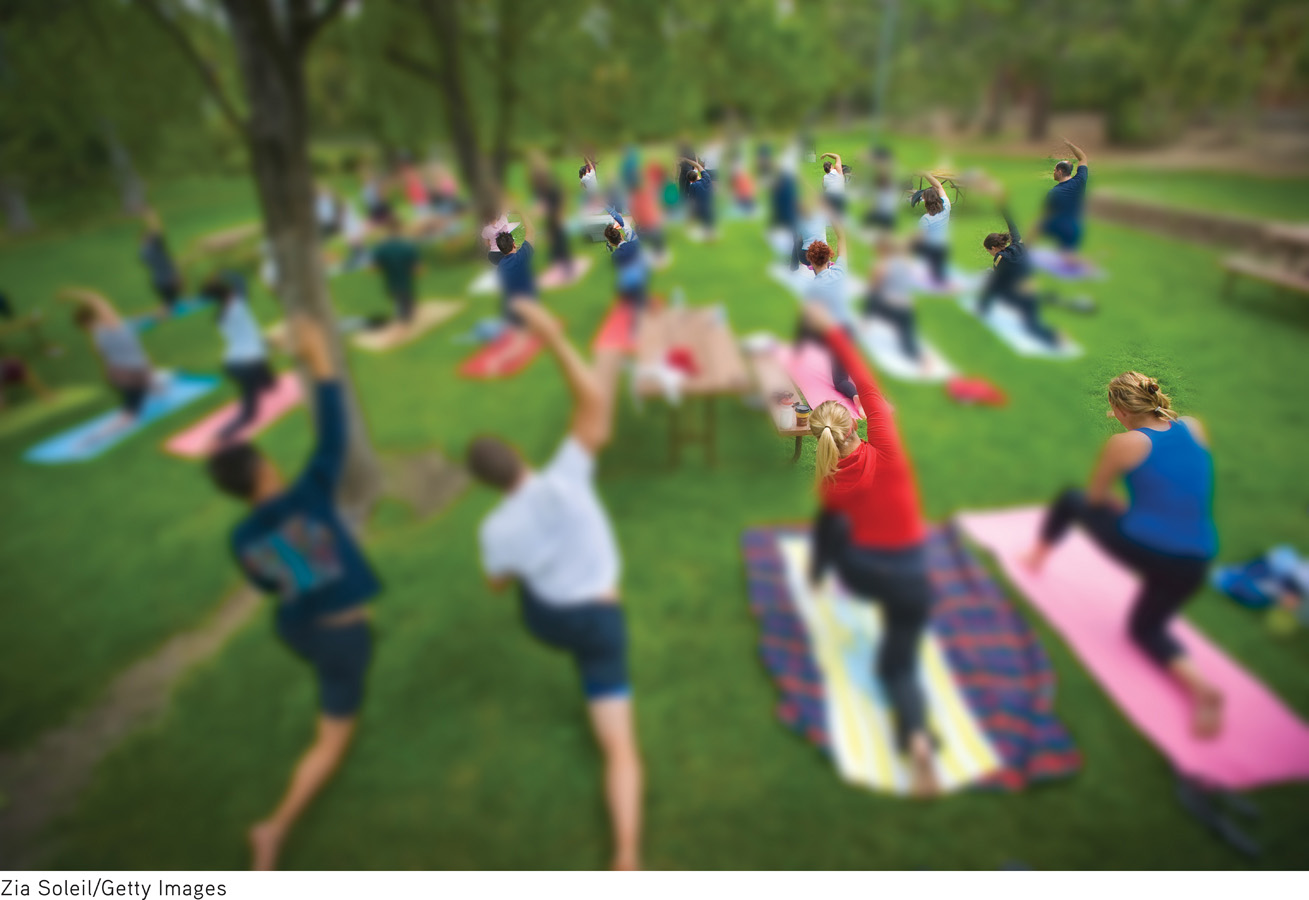Chapter 12 Introduction
458
CHAPTER 12
Emotions, Stress, And Health
.............

- Introduction to Emotion
- Expressing Emotion
- Experiencing Emotion
- Stress and Illness
- Health and Coping
459
No one needs to tell you that feelings add color to your life, or that in times of stress they can disrupt your life, or save it. Fear, anger, sadness, joy, and love are psychological states that also entail physical reactions. Nervous about an important encounter, we feel stomach butterflies. Anxious over public speaking, we frequent the bathroom. Smoldering over a family conflict, we get a splitting headache.
You can surely recall a time when emotion overwhelmed you. I [DM] retain a flashbulb memory of the day I went to a huge store to drop off film and brought along Peter, my toddler first-
With mild anxiety, I peered around one end of the counter. No Peter in sight. With slightly more anxiety, I peered around the other end. No Peter there, either. Now, with my heart accelerating, I circled the neighboring counters. Still no Peter anywhere. As anxiety turned to panic, I began racing up and down the store aisles. He was nowhere to be found. Apprised of my alarm, the store manager used the public-
But then, as I passed the customer service counter yet again, there he was, having been found and returned by some obliging customer. In an instant, the arousal of terror spilled into ecstasy. Clutching my son, with tears suddenly flowing, I found myself unable to speak my thanks and stumbled out of the store awash in grateful joy.
Emotions are subjective. You can’t pick them up, throw them, or order them at your favorite restaurant. But emotions are real, says researcher Lisa Feldman Barrett (2012, 2013): “My experience of anger is not an illusion. When I’m angry, I feel angry. That’s real.” Where do our emotions come from? Why do we have them? What are they made of?
Emotions are our body’s adaptive response. They support our survival. When we face challenges, emotions focus our attention and energize our actions (Cyders & Smith, 2008). Our heart races. Our pace quickens. All our senses go on high alert. Receiving unexpected good news, we may find our eyes tearing up. We raise our hands triumphantly. We feel exuberance and a newfound confidence. Yet negative and prolonged emotions can harm our health.
460